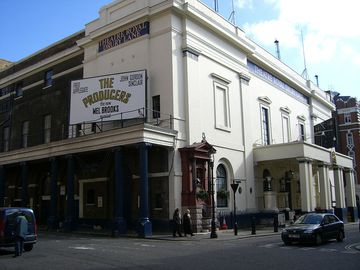

Theatre in England was entirely banned for some while in the 17th century – when the Puritans came to power, and all the theatres were closed 'for the good of public morals'. King Charles II loved theatre, and he had developed a taste for it in France – where he was obliged to take refuge after his predecessor, Charles I had been arrested and beheaded by the Puritan government. When Charles II came to power in 1660, one of his first acts was to permit theatre again, and he used his private position as monarch to achieve this – he gave personal permission to two theatres to reopen, signing letters which promised that their work would not be closed down again. Thomas Killigrew succeeded in being one of just two theatre managers in London, and built his new theatre in the cheapest part of town – Covent Garden, where the noise, dirt, smell and dubious moral atmosphere made rents as cheap as possible. Samuel Pepys, the famous London diarist, succeeded in attending the second performance in the new theatre, and make the following remarks in his Diary. “There are some faults, as the narrowness of the passages in and out of the Pitt, and the distance from the stage to the boxes, which I am confident cannot hear; but for all other things it is well, only, above all, the musique being below, and most of it sounding under the very stage, there is no hearing of the bases at all, nor very well of the trebles, which sure must be mended”. But none of these 'faults' stopped the meteoric artistic and financial success of what became 'The Theatre Royal, Drury Lane'. It was the foremost drama theatre in London, and one of its young stars was the famous courtesan-turned actress of 17th century Nell Gwynne. Gwynne soon became the King's mistress, thus securing royal protection and patronage for the young theatre. Another similar arrangement repeated itself in the late 18th century, when one of the theatre's leading ladies, Mrs Crouch, became the mistress of the Prince Of Wales. The Prince was induced to sign financial support letters by Mrs Crouch's colleague at the theatre, Anna “Nancy” Storace – the sister of composer Stephen Storace. Nancy had created the role of Susanna in Mozart's opera The Marriage of Figaro in Vienna – and now she planned to bring Mozart to London to repeat the success. It should have been easy – the rest of the cast had fled Franco-Austrian wars, and were all living in London. But it was not to be – by the time the Prince's letter reached Vienna, Mozart was dead, in circumstances which have never been fully explained. London never saw “The Marriage Of Figaro” - until many years later.
The Theatre Royal today – the fourth building on the original site – is one of London's leading stages, and has presented shows as different as the Shaolin Kung-Fu Monks, Monty Python, and the long-running musical Miss Saigon. Once per year it stages a charity benefit show – 'Comic Relief' – where famous comedians perform for free, and all the money goes to charities working for the relief of poverty around the world.
Although we don't now know in which house he lived, there used to be a muffin-seller who lived in this street – because every British child knows the nursery song:
Have you seen the muffin-man? The muffin-man? The muffin-man?
Have you seen the muffin-man, who lives in Drury Lane?